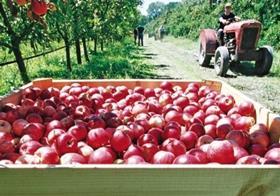
New Zealand apple and pear industry body Pipfruit New Zealand has insisted the country's submission to the World Trade Organisation against Australia's long-standing ban on its apple exports is based on sound science.
The New Zealand government has now lodged its submission to the WTO against the ban, which was imposed in 1921. Australia has four weeks to respond to the submission, with the dispute due to be heard by a specialist panel at the trade organisation.
'This has become the longest-running trade dispute between our two countries,' Pipfruit NZ chief executive Peter Beaven said today from Hastings. 'From the day of New Zealand's most recent application for apple access in 1999, the science has been clear. Fireblight does not carry any risk of spread on mature apples. Only political interference in the scientific process has caused the problem between our two countries.'
Mr Beaven said he felt Australia only had itself to blame for allowing the situation to develop as it had. 'New Zealand takes no pleasure from commencing legal action against its neighbour and closest trading partner to an international court,' he stated. 'The real losers are the Australian consumers. They have been denied choice and paid the second-highest apple prices in the world for eight years for second-rate produce, while the politicians interfered in due scientific process.'
The first section of the submission outlines the history of the New Zealand application, which commenced in the mid 1980s. 'Anyone who reads it will recognise it as a very sad indictment of Australian biosecurity systems and their potential for influence by industry interests,' Mr Beaven continued. 'What makes the situation worse is that Australia trumpets free trade in many international forums only to use fraudulent science and delaying tactics to protect inefficient industries at home. If Australia truly supports the principles of free trade, they need to learn to walk the walk, not just talk the talk.'



